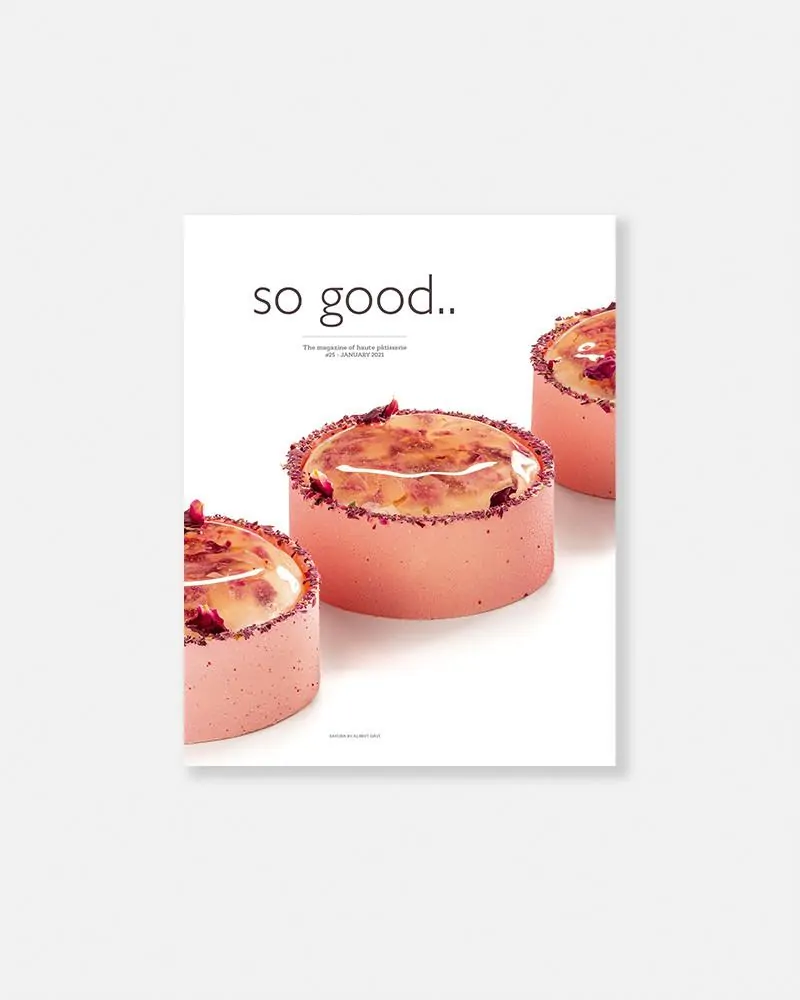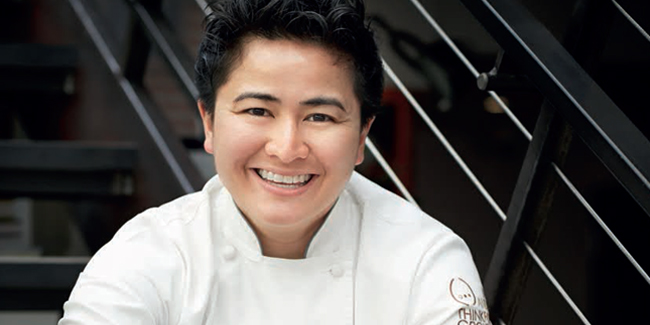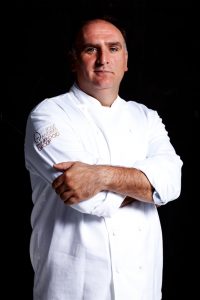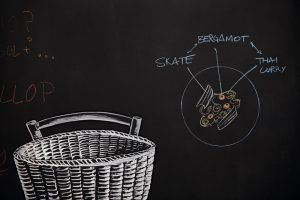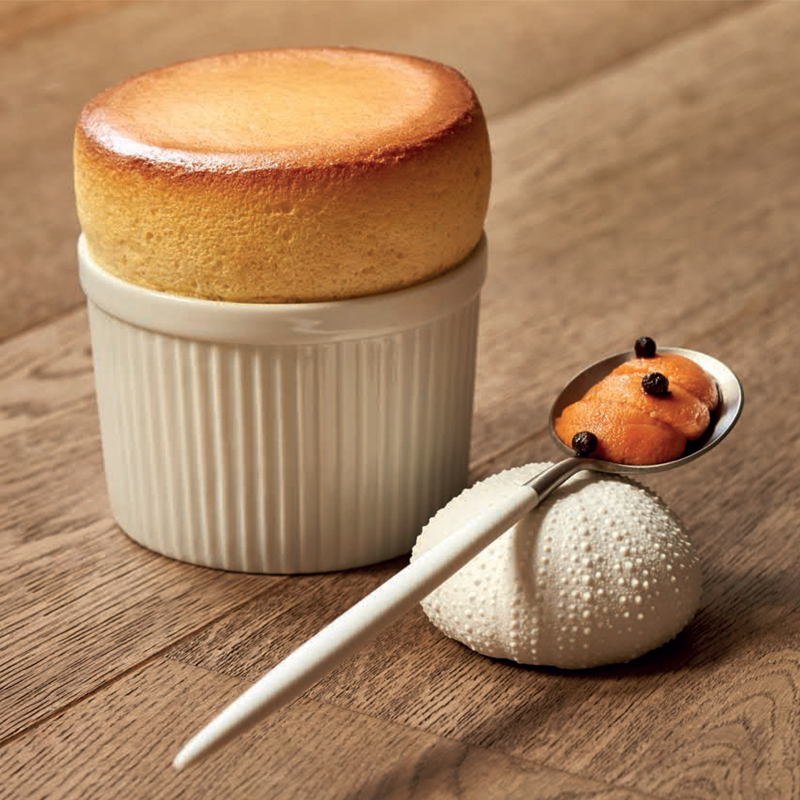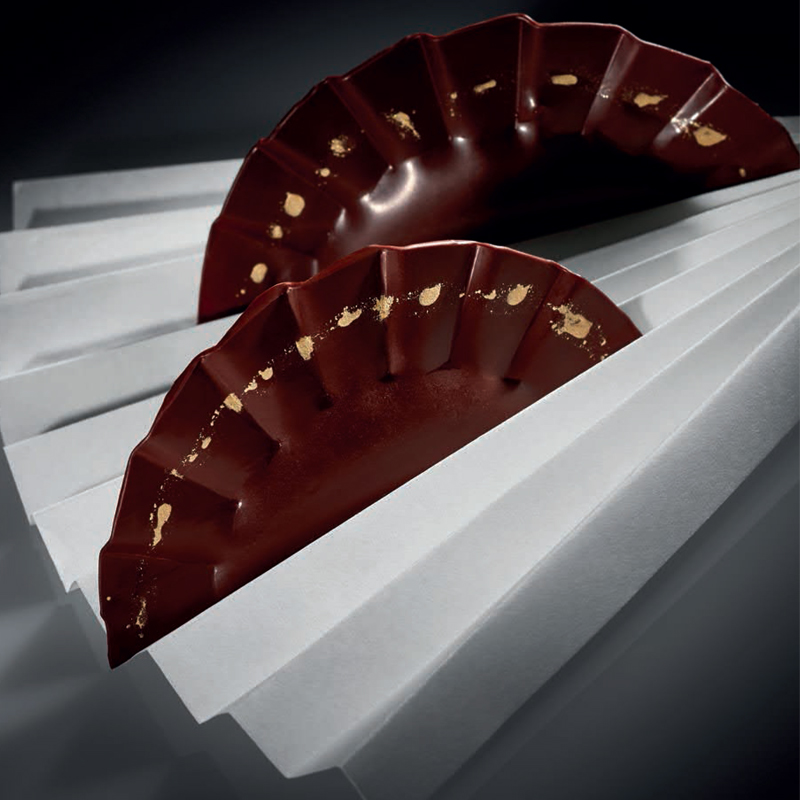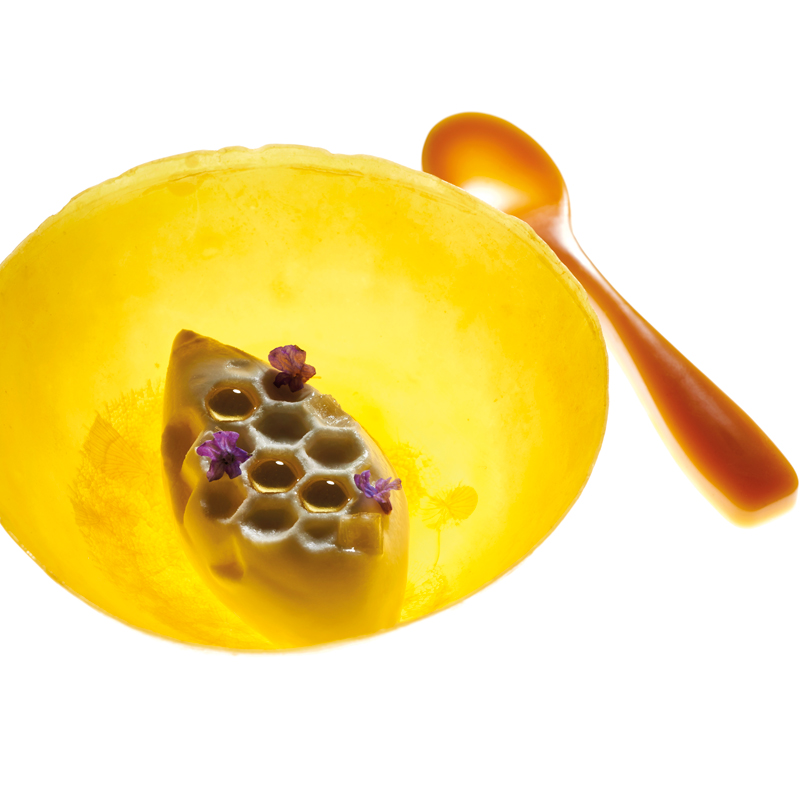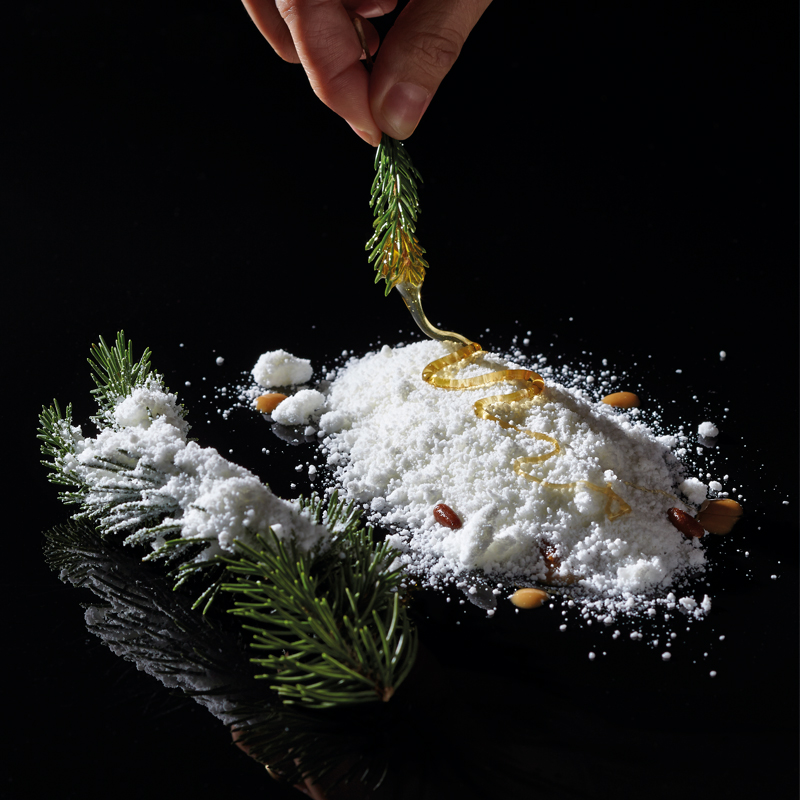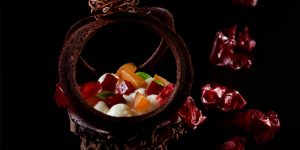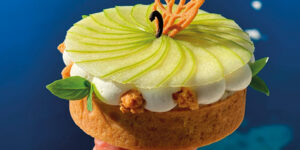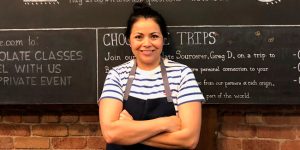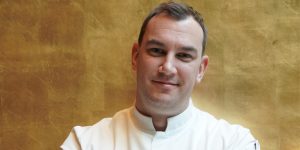Charisse Dickens Pastry in Times of Coronavirus so good #25
Charisse Dickens: ‘We get a lesson in history each time we create a dish’
Author:
Santiago Corral
TAGS #
Charisse Dickens Pastry in Times of Coronavirus so good #25
Washington D.C. will always have a very special place in my heart. During the years that I lived in the city, I had the chance to meet chef José Andrés, whom I had always admired. This universal Asturian arrived in the United States in 1991, first in New York and later in the country’s capital city. Today he owns Think Food Group, with about 30 restaurants, and has completely transformed the concept that Americans had of Spanish food. His vast empire ranges from informal establishments to Michelin-star restaurants whose frequent customers include politicians, heads of state and above all good cuisine lovers and connoisseurs.
But like any great man, José Andrés needs a great team. And this is where we find chef Charisse Dickens, in charge of Think Food Group’s R&D department and responsible for the creation and development of ideas, concepts and products in a team made up of several chefs under her management. Through the interview we had the chance to keep in so good #25, we met a determined chef, with ideas as clear as that ‘creativity is about diligence, discipline and perseverance.’ It is time now to share some extracts from the interview we published then.
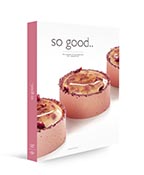
Who is Charisse Dickens?
I am a proud Hawaiian/Japanese woman raised on an organic produce farm on the slopes of South Kona on the Big Island. I remember spending summer mornings helping my parents harvest and package the produce to sell at the local supermarkets. In the afternoon, between farm duties, my sister and I would enjoy lunch by making our way through the garden eating fruits and vegetables straight off the plant.
Not until leaving Hawaii did I truly realize the value of what I had growing up. I still remember the phone call I made to my dad from my tiny apartment in Florida after my first real trip to the grocery store. I was so homesick I just wanted some semblance of home. ‘Pa, I just spent $6 for an organic head of lettuce’ I went on to tell him how expensive produce is, and how it wasn’t as good as the farm. Young, naive and completely unaware of the FDA restrictions around shipping agriculture out of Hawaii, I began to bargain with him, telling him I would send him a check if he would send me a box of produce and some fish. That gave him such a good laugh.
You hear it everywhere, a woman that makes chef is always ‘a bad ass’. Why? Why can’t she be assertive, confident, and show good leadership traits without having to be portrayed as hardened?
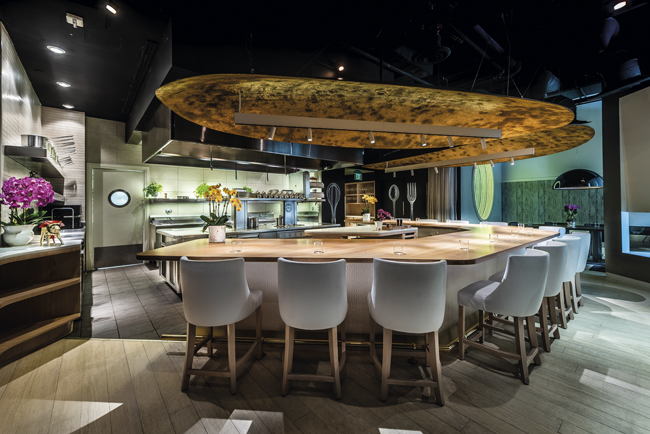
When did you realize you wanted to become a chef? What culinary school did you attend?
I don’t know if there was ever an ‘Aha!’ moment for me wanting to be a chef. Cooking dinner was an activity I always wanted to be a part of. I even remember entertaining my family by mimicking Julia Child in the kitchen when I was cooking. I consider myself fortunate, my job is my passion. After running through every position in a sushi restaurant in Florida I was ready for my next steps. In 2007 I had a desire to test my potential, so I applied to the Culinary Institute of America at Hyde Park.
I still remember how elated I was when I received my acceptance letter. Having spent so many years in the industry before attending school, I am often asked why I went to school at all seeing as how I was already on a path to becoming a chef. Simply answered, I went for an education. No one should ever turn away an opportunity to grow. The most valuable lessons I learned in culinary school were not about how to make a bechamel, or the best way to truss a chicken. The lessons that resonated with me were ones that revolved around the importance of being organized, setting a good example, and that success comes with hard work.
What was your first job after graduating from the culinary school?
During my time at the CIA, everyone was competing for stages and employment at places like The French Laundry, Le Bernardin, Eleven Madison Park, and Per Se… all of the big names that were taking up the headlines of the food and dining section of the New York Times. At first this was my tactic as well; who doesn’t want to be part of the best?
But then, I had a conversation with one of my instructors that changed my entire perspective.
His words were: ‘Take the time to learn how to cook for the many. If you can feed a hundred people, you can feed ten. Just because you can feed ten people it doesn’t mean you can feed a hundred.’ Renewed, I turned my attention to a successful catering company out of Tarrytown, NY, Abigail Kirsch. I did events from a high-end 6-course dinner at a private residence, to buffet-style that fed 400 people. I’m not sure if I would have been afforded the same attention from the chefs at those highly recognized, Michelin-rated restaurants in the city.
Creativity is about diligence, discipline and perseverance. In most scenarios, creativity is the ability to link ideas together.
Tell us about Think Food Group. How did you start working for them? How did you become the chef in charge of the R&D?
I like to believe I was destined to be at Think Food Group. A friend sent me a Craigs- list ad for a position at Minibar by José Andrés at the off chance I would be interested in staying in the kitchen. I went in for a stage and never turned back. During my tenure at Minibar, it evolved from a 6-seat bar situated on the second floor of a busy restaurant to having its own space to call home. Since starting at TFG, I have been a part of nearly every restaurant opening since 2010. The exposure I received was instrumental in expanding my culinary awareness. I consider myself lucky that I get to work with and learn from experts of their craft every day. I am proud to lead our group of talented chefs, but I do not consider them to be in my charge. They work with me, not for me.
How involved is Chef José Andrés when you create new dishes? Could you explain the process and steps for new menus and new concepts?
José is really at the heart of all of our creativity. When I break down my job, I like to say that it is my job to bring José’s ideas to fruition, whether it is a dish, a concept or a service style. As busy as he is with all of his charity work, he still likes to be part of the creative process. José often says, ‘Every plate tells a story of who we are, where we have been and what we want our world to be.’ Creativity starts at research. We dive into books or begin searching online, learning everything we can. We want to know as much we can about the ingredient we are using or the dish we are trying to create. When creating we want to understand why a flavor is there? What are the cultural traditions around this? Where does this dish originate? We get a lesson in history each time we create a dish.
The kitchen and in truth the world opened up when I began to put my ego aside. I climb those mountains so I can see the world, not so the world can see me.
How hard did you have to work to achieve success in your culinary career as a female chef?
I will say that I still work at it every day. The hard truth is that though you may see many women in a kitchen you rarely see women rise to the level of executive chef. You hear it everywhere, a woman that makes chef is always ‘a bad ass’. Why? Why can’t she be assertive, confident, and show good leadership traits without having to be portrayed as hardened? One of the biggest challenges in any kitchen are egos.
A healthy ego can be such a valuable tool for growth. The kitchen and in truth the world opened up when I began to put my ego aside. I climb those mountains so I can see the world, not so the world can see me.
Confidence is key. I have seen really talented female chefs turn down a great opportunity because they felt as though they weren’t the whole package yet. That may be why when a female chef emerges, she is the tour de force.
What is the first thing that comes to your mind when you create a new menu item?
The first thing I ask myself when creating is why? Why are we inspired to do this? I often go back to a presentation from Ferran Adrià where he said ‘Creativity has no compassion for you. It doesn’t matter how much passion you have for it.’
Of every successful idea that has come out of our kitchen, there were 15 other ideas that didn’t make it. I don’t like to use the word failure because it implies that there was no success. Maybe we didn’t get the result that we wanted, but we learned something, and that to me is progress. People have this misconception that creative moments are spontaneous, I will say that those moments are few and far in between. Creativity is about diligence, discipline and perseverance. In most scenarios, creativity is the ability to link ideas together.
I could be working with a technique and I will say: ‘You know what would work great for this?’ and suddenly I am thumbing through my notebook from 2 years ago.
The big question right now is how do we recover from this? Not only as a business, but as a community. I have had many close friends that have had to shutter their once thriving businesses, and it is heartbreaking.
How is Think Food Group adapting to the global pandemic? Do you think the restaurant business will recover soon?
Think Food Group is working hard to be a beacon of leadership to cities in which we operate. In DC we are working directly with the office of the Mayor to help create safe reopening standards for restaurants. We assembled a playbook that we use to reopen and reactivate our restaurants.
We have also made that playbook public on our website for anyone that wants to reference it. There is no doubt our industry has been devastated. The big question right now is how do we recover from this? Not only as a business, but as a community. I have had many close friends that have had to shutter their once thriving businesses, and it is heartbreaking. Back in March, when the entire country went into a shutdown, we opened the doors of our restaurants to begin providing meals to the citizens of DC affected by the pandemic, free of charge. We know the importance of a hot meal, and we believe everyone deserves one. This is also a challenging time mentally for everyone, so we have therapists and counselors available to our employees to help them get through this. We don’t want anyone to feel like they are going through this alone.
Where do you want to take your career next?
This is really a tough question. I often get approached with business opportunities, but I have no desire to have my own restaurant. I get my fulfillment by teaching, and coaching others to not just be better cooks, but better leaders.
I have some ideas on what I think our industry needs, and no, it’s not another restaurant.
